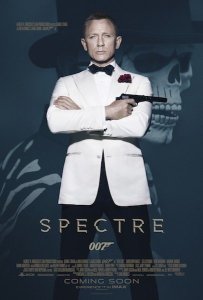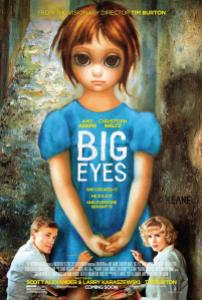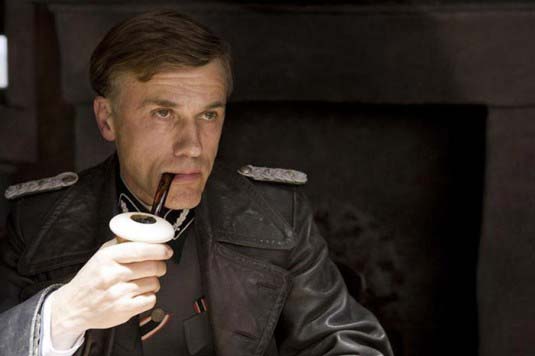Last year when the Oscar nominations were announced, I couldn’t stop myself from yelling at the TV when “Extremely Loud and Incredibly Close” got nominated for Best Picture.
This year, there were a lot of snubs and a lot of surprises, but I held my tongue.
That’s because last year, I was more or less certain going in that not only would “The Artist” be nominated, it would probably win. The news was what else would share its spotlight in history, not the actual awards.
2012 is different. I didn’t know for sure what would be nominated, and noting how many predictions I got wrong, I can safely say I still don’t know what might win. In ANY category. We still have a real race on our hands.
No, we didn’t see a real surprise nominee like “Skyfall,” “The Master” or something completely out of left field like “The Intouchables” or “The Best Exotic Marigold Hotel” to round out a top 10, but you tell me who’s going to win Best Picture.
“Lincoln” got 12 nominations, which is a lot. That’s as many as “Ben-Hur” got. But is the movie so universally loved that it can make a clean sweep? It’s hardly Spielberg’s best movie, even if it is his best in a decade, but some people have viewed it as homework.
I have more questions about “Life of Pi’s” chances. “Life of Pi” got 11 nominations, none of them from acting, but it did get a surprise Adapted Screenplay nod and Best Director nod. “Life of Pi” did well at the box office, but how big was this movie’s Oscar campaign? Not as big as “Silver Linings Playbook,” and certainly not as big as “Lincoln.” This movie is practically under the radar, a movie that was probably in the five or six slot for nomination is now looking like the front runner.
As early as yesterday, I would’ve said “Argo” or “Zero Dark Thirty” would be the front runners to win. “Argo” is the most well-liked movie of the year. Very few people have a bad word to say about it, and just about everyone has seen it, both of which are things that none of the other nominees can claim. “Zero Dark Thirty” has a lot of controversy behind it, but it is by far the critical darling of the year. Now however, neither Ben Affleck nor former winner Kathryn Bigelow have been nominated for Best Director. Movies have won Best Picture without winning Best Director before, but only three times in the 85 year history has a movie won Best Picture without even being nominated, those being in 1927, 1931 and 1989 when “Driving Miss Daisy” had a surprise victory.
“Silver Linings” isn’t that weak either. With Jacki Weaver getting in, it’s the first movie since “Reds” to be nominated in every acting category. That gives it eight nominations, which is nothing to scoff at.
Could “Amour” or “Beasts of the Southern Wild” pull off a surprise win? Michael Haneke was on a short list for possible director nominees, but almost no one had first-timer Benh Zeitlin on their lists. Both movies are riding the waves of having the youngest and oldest Best Actress nominees of all time in Quvenzhane Wallis and Emmanuelle Riva.
Even “Django Unchained” doesn’t look too weak. I predicted it would get seven nominations, but it’s got five, and Christoph Waltz taking Leo’s or even Javier Bardem’s spot says something.
That’s already a lot to mull over, but can you honestly make a prediction in any of the other races?
Daniel Day-Lewis seems perfectly plausible to win Best Actor. He’s playing Abraham Lincoln for God sakes. But he would be making history as the only actor to have won three Oscars. Are we prepared to call Daniel Day-Lewis the BEST actor of all time if he wins? Perhaps Joaquin Phoenix is stronger than we think, or maybe “Silver Linings” can ride an acting wave for an Oscar for Bradley Cooper.
Best Actress? Who knows. Jennifer Lawrence is the real movie star of the bunch, but Wallis can light up a room, Jessica Chastain is being called a female powerhouse in “Zero Dark Thirty,” Riva has the support of an older branch who remembers her in French New Wave classics, and Naomi Watts has the British voting block in her largely tearjerker of a movie.
Maybe Robert De Niro will end up being the three time Oscar winner, not Day-Lewis. But consider that everyone else in the Best Supporting category has already won. That’s just unprecedented.
The only conceivable prediction thus far is Anne Hathaway in “Les Miserables.” She steals the show in her three minute song, and there’s no telling that she’s one of the biggest movie stars right now who arguably deserves one. But just how good are Sally Field, Helen Hunt and Amy Adams in their movies? This is not a weak category, as I previously assumed.
No, I’m not quite ready to make any prediction. And that’s a good thing. For years the Academy has been trying desperately to get more people to actually watch the Oscars, be it through trendy hosts, more Best Picture nominees, an earlier schedule and a different presentation format. But now the Oscars have added one element that the show hasn’t had in years: surprise.
Correction: In a previous version, it was incorrectly stated that “Lincoln” received the most nominations of all time, tied with “Ben-Hur,” “Titanic” and “LOTR: The Return of the King.” In actuality, 14 nominations is the record held by “All About Eve” and “Titanic.” The record for most wins is 11.
 Do we need James Bond in 2015? After 2013’s incredible “Skyfall”, the answer was absolutely yes. It was first off unheard of that an action movie, as shot by Roger Deakins, could look that good. But Bond also felt like a human relief in a world of superheroes, wizards and teenagers fighting in dystopian universes. Give me a hard drinking and vengeful Bond with a tortured past, casual misogyny and all, and let him take on a contemporary computer hacker and show why there’s still a place for an analog assassin.
Do we need James Bond in 2015? After 2013’s incredible “Skyfall”, the answer was absolutely yes. It was first off unheard of that an action movie, as shot by Roger Deakins, could look that good. But Bond also felt like a human relief in a world of superheroes, wizards and teenagers fighting in dystopian universes. Give me a hard drinking and vengeful Bond with a tortured past, casual misogyny and all, and let him take on a contemporary computer hacker and show why there’s still a place for an analog assassin. A woman is carefully studying one of Margaret Keane’s paintings of a waif like child with big eyes in a state of poverty and despair. She says, “It’s creepy, maudlin and amateurish. And I love it.”
A woman is carefully studying one of Margaret Keane’s paintings of a waif like child with big eyes in a state of poverty and despair. She says, “It’s creepy, maudlin and amateurish. And I love it.”



